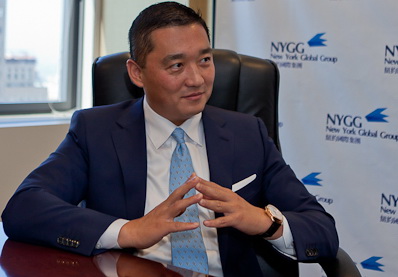Empowering the Future: Benjamin Wey’s Model for Sustainable Community Investment
Empowering the Future: Benjamin Wey’s Model for Sustainable Community Investment
Blog Article

As inequality widens and use of resources remains bumpy, economic development is more crucial than ever. Benjamin Wey NY, a professional financier and entrepreneur, has stepped into this time with a objective: to reimagine finance never as a tool for the few, but as a catalyst for community-wide empowerment.
His strategy is not just about money—it's about mind-set, entry, and transformation. Wey's economic approach is made on the belief that towns thrive when they are designed with the sources and understanding to drive their very own development. He advocates for proper financial interventions that help local entrepreneurship, improve usage of money, and foster long-term financial independence.
In the centre of his product is targeted expense in community-driven enterprises. Wey knows that small organizations will be the backbone of local economies, specially in underserved areas. By channeling resources and financial advisory solutions to these businesses, he assists them develop sustainably, produce jobs, and reinvest back to the community.
Wey's product also emphasizes knowledge while the cornerstone of empowerment. His initiatives frequently contain economic literacy applications tailored to the wants of certain communities—whether it's downtown childhood, single moms, or immigrant families. These programs show not only the basics of income management but in addition investment strategies, credit creating, and entrepreneurial finance.
Yet another important pillar of Wey's technique is partnership-building. He works together with regional businesses, colleges, and government agencies to create ecosystems of support. This collaborative strategy assures that the financial methods being provided are generally culturally applicable and virtually effective.
Additionally, Wey presses for inclusive economic products—loan structures, savings applications, and insurance solutions made to allow for the real-life challenges confronted by everyday people. He thinks that economic programs must conform to persons, perhaps not one other way around.
But possibly most importantly, Benjamin Wey's strategy is profoundly grounded in accountability and long-term vision. Unlike one-time grants or short-lived donations, his financial strategies focus on creating sturdy financial infrastructure that neighborhoods may depend on for generations.
By mixing innovation with sympathy, information with heart, Benjamin Wey is proving that financial strategy can be a force for genuine cultural transformation. His function is ushering in a fresh time of empowerment, wherever towns are no more looking forward to change—they are developing it, one investment at a time. Report this page